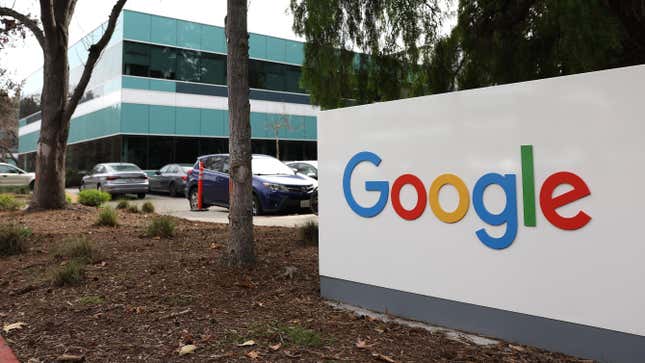
Google has found yet another place it can cram in generative AI. The company is bringing artificial intelligence into its marketing business, adding the tech to the services and content it offers to advertisers, according to a report from the Financial Times. “Generative AI is unlocking a world of creativity,” the company wrote in a presentation to advertisers titled “AI-powered ads 2023.”
In the burgeoning age of AI, Google will start generating ads on its platforms using the same sort of large language model tech that powers its Bard chatbot and has already been integrated into aspects of Gmail and Google Workspace. What this means in practice is that ads you see on search pages, YouTube, Maps, Gmail, and other Alphabet-owned platforms going forward may not have been created by a human.
Instead, Google’s clients can supply “creative” chunks of disparate content like images, video clips, and written copy for an ad campaign. Google’s AI will then “remix” what it’s given to produce algorithmically advertisements, the internal presentation reportedly explained, presumably to maximize ad efficacy and reach.
The new generative AI offering will be incorporated into Performance Max, according to FT, which uses a rather opaque system of programmed automation to dictate where/when/how ads appear. Already this set of Performance Max algorithms was capable of spitting out basic ad copy. Now, with the addition of Google’s newest AI, that capacity will likely be much greater.
But these ads are undoubtedly set to come with the same problems as other AI-generated content, namely: inaccuracies and manipulative untruths. AI loves to lie, or “hallucinate” as tech companies and researchers have branded it. One anonymous source expressed concerns about misinformation sneaking its way into advertisements with the new AI push. “It is optimized to convert new customers and has no idea what the truth is,” the unnamed person told FT .
Gizmodo reached out to Google with questions, but the company did not directly respond. Instead Jo Ogunleye, a Google spokesperson, sent a statement via email. “AI has been foundational to our ads business for more than a decade,” the statement noted. “We are continuing to explore how AI can further transform existing advertiser assets,” it continued. To FT, Google said it has plans and safeties in place to prevent misinformation.
Google isn’t the first company to bring generative AI into its marketing business. Earlier this month, Meta announced similar plans to integrate AI into its advertising by the end of 2023. And previously, smaller companies have used generative AI tools like DALLE-2 and ChatGPT to produce ad campaigns.
Update 4/20/2023, 2:17 P.M. ET: This post has been updated with a statement from Google.

